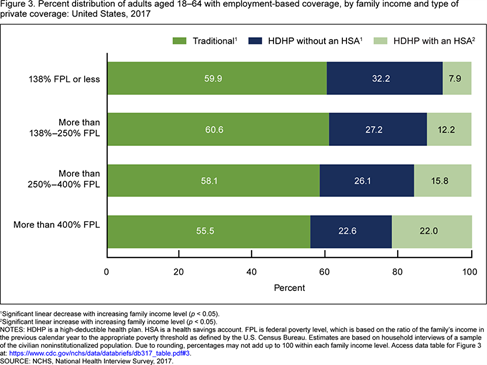Which Tax Saving Perk Do Executives Consistently Ignore During Annual Benefits Enrollment?

Joan Babab is a highly compensated Director at a large health care company. Her husband, Alex, also is at the top of the pay scale at his employer. They consistently fall into the highest tax brackets when they file their federal income tax return. Joan is very conscientious when she selects her benefits each fall. She is prudent about maximizing her 401k contributions to minimize her annual tax burden. Since she and her husband are very healthy, she chooses a high deductible plan for her health insurance to maximize her take home pay. Once she completes the enrollment, Joan walks away confidently. She knows that she has avoided as much federal taxation as possible.
In the month following her latest enrollment, Joan had a year-end review with her CERTIFIED FINANCIAL PLANNER™ professional, Angela. Joan proudly discussed her 401k salary deferral. “I’ve maxed out my contributions to the plan” Joan said. “I think I’ve done all that I can to increase my wealth in retirement. Did I miss anything?” Angela asked Joan “Does your company offer an HSA?” Joan looked confused. “What’s an HSA?”
The Health Savings Account (HSA) was designed to allow employees to use the premium savings from a High Deductible Health Plan (HDHP) to offset the higher deductible which they may incur. It also is a great way to save for retirement on a tax-favored basis. Unfortunately, the HSA suffers from somewhat of an identity crisis which causes it to be ignored. The US Government reports that there are more taxpayers who do not contribute to an HSA than there are those who do contribute. [1]
HSA versus FSA
Many think the account is a “Use It or Lose it” benefit. It is not. That feature belongs to the similarly named Flex-Spending Account (FSA). One of the unsung benefits of an HSA is that any unused balance can be rolled over into the next year. In effect, you can continue to roll it over for many years and subsequently use it in retirement. However, the primary benefits of an HSA for taxpayers are
· Contributions are Federal Tax Deductible regardless of income.
· HSA funds may be invested. Federal tax on earnings is deferred until withdrawal.
· All withdrawals (including earnings) used to pay for qualified health care costs are free from federal taxes regardless when they are made. (However, state income taxes may apply. Consult with your tax advisor.)
· If the HSA contributions are directly made through a payroll withdrawal under a Section 125 Cafeteria Plan, they withdrawals are NOT subject to FICA (Social Security) tax for either the employee or the employer.
HSA Contribution Limit
In 2020, the family contribution limit is $7100. If you are over 50, you can add an additional $1000. So, if your employer’s plan is structured properly, you may be able to shelter $8100 from Federal and State Income taxes as well as Social Security taxes. In a high tax state, that is a big opportunity! Joan clearly missed some significant tax savings.
As was noted earlier, the account can be used in retirement for health care expenses such as Medicare Advantage plans. However, you cannot contribute to the account once you enroll in Medicare or for Medicare Supplemental policies (Medigap).
Should You Contribute to an HSA or 401k?
So, how does this benefit rank in comparison to other retirement accounts such as a 401k? Here’s a potential ranking. (Again, consult with your tax advisor.)
· Many companies will match your 401k contribution up to 4 or 5 %. If that’s the case, contribute to your 401k up to the maximum match.
· If you have additional funds, contribute to your HSA up to the annual maximum.
· If there is any money left over, add that to your 401k deferral or IRA up to the annual maximum.
The Health Savings Account may not be appropriate for everyone. If you require a significant amount of health care services annually, it may not be for you. However, if a high deductible plan is your only option or you can pay for health care out of your normal savings, it can be a great benefit in both the short and long term.
Advisory services offered through Capital Analysts or Lincoln Investment, Registered Investment Advisers. Securities offered through Lincoln Investment, Broker Dealer, Member FINRA/SIPC.www.lincolninvestment.com
West Coast Financial Group, Inc. and the above firms are independent and non-affiliated.
Tax advice is not offered through, nor supervised by Lincoln Investment or Capital Analysts
[1] Source: CDC website



